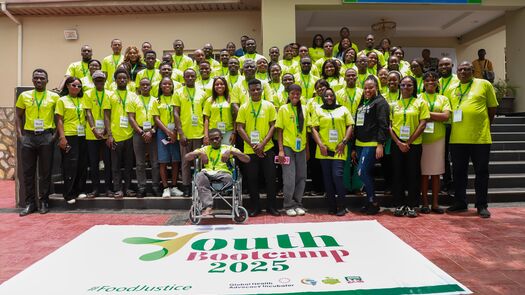November 25, 2025
October 3, 2024
New Report Underscores Need for Countries to Substantially Raise Health Taxes

Effective Health Taxes
Last week, the Task Force on Fiscal Policy for Health, co-chaired by Mike Bloomberg, Lawrence H. Summers and Prime Minister Mia Amor Mottley, released a new report demonstrating the power of health taxes to address the growing burden of noncommunicable diseases (NCDs). Together, the consumption of tobacco, alcohol and sugary beverages (SBs) contribute more than 10 million deaths worldwide each year. The report finds that health taxes can improve health, reduce the economic toll of NCDs and raise revenue to invest in public health programs.
This report provides critical new evidence for everyone advocating for healthier futures in their countries and communities. Some of the takeaways:
Higher Health Taxes Are a Win-Win-Win: The report finds that raising excise taxes on tobacco, alcohol and SBs enough to generate a 50 percent increase in price globally can generate trillions (USD) in government revenue over five years, which can help alleviate fiscal crises. If generated revenue is allocated to public health, this would increase government health budgets in low- and middle-income countries by 40 percent, which can be invested in measures like increasing access to safe drinking water or funding school meals programs. The benefits of health taxes extend beyond decreasing affordability, consumption, improving health and reducing healthcare costs. Fiscal policy can also be critical in recognizing the harms of ultra-processed products, which younger people are more likely to consume than their elders. Strong health taxes can play a role in promoting healthy diets by taxing ultra-processed foods and subsidizing healthy ones.
Health Taxes Are Effective Yet Underutilized: Health taxes are cost-effective measures that can save lives and generate government revenue without harming the economy. The report reveals, however, that current SB tax rates are set too low to make a meaningful impact. It offers clear recommendations for raising taxes, aiming for a 50% price increase to drive healthier choices and stronger public health outcomes. It also recommends not overlooking the need to regulate and tax beverages that include non-sugar sweeteners, which have been used in reformulations of some products.
Industry Protects Profits Over Public Health: Corporate interests continue to prevent countries from adopting strong health taxes. The report underscores how industry persistently spreads disinformation to flame economic fears and question the effectiveness of health taxes. GHAI’s recent report on industry interference exposes Big Soda’s playbook to protect their profits by undermining SB taxes at the cost of public health.
The Task Force’s report also illustrates the harms of sugary drink consumption and its link with rising rates of noncommunicable diseases, highlighting their increased availability and rise in consumption, especially in regions like Sub-Saharan Africa. During the launch, representatives from Colombia and the Philippines demonstrated the invaluable role that civil society organizations played in making the case for SB taxes in their countries, ultimately helping to pass strong policies.
Reports like this bring critical global attention to why effective policies such as health taxes should be enacted by more countries. GHAI works with advocates across the globe to support advocacy campaigns to promote the adoption and implementation of SB taxes that are evidenced-informed and designed to the highest standards to achieve a public health objective. Learn more about GHAI’s work on SB taxes here.
To explore the Task Force on Fiscal Policy for Health’s report, click here.



